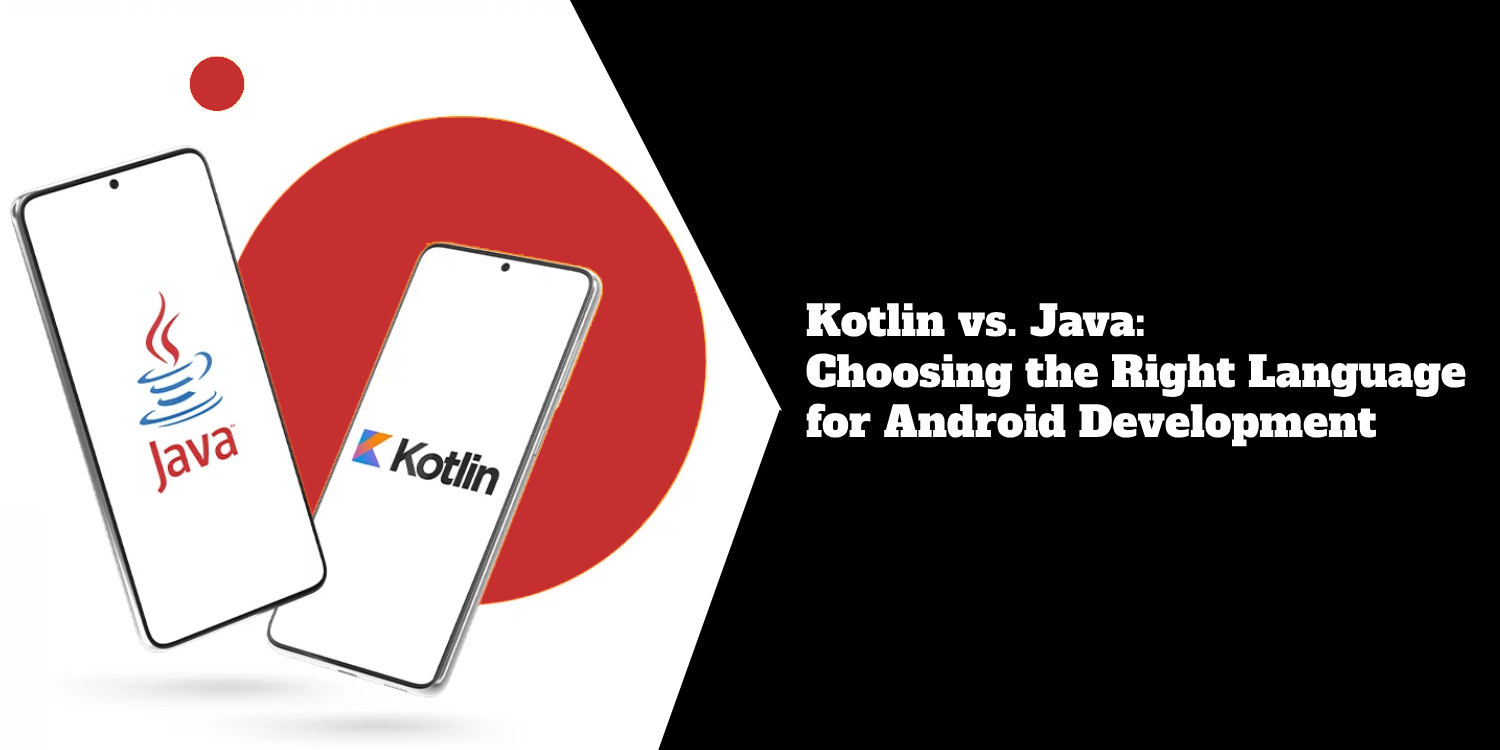Android development has come a long way since its inception, with developers having more choices than ever when it comes to programming languages. Among the most prominent contenders are Kotlin and Java. In this blog post, we’ll delve into the debate of Kotlin vs. Java for Android development, exploring the strengths and weaknesses of each language to help you make an informed decision.
Background on Kotlin and Java:
Java:
Java has been the primary language for Android development since the platform’s inception. It’s a mature, statically-typed language known for its reliability, portability, and extensive ecosystem. Android development services rely heavily on Java due to its robustness and compatibility with the Android platform.
Kotlin:
Kotlin, developed by JetBrains, emerged as a modern alternative to Java for Android development. It’s fully interoperable with Java, meaning developers can seamlessly use Kotlin alongside existing Java codebases.
Kotlin’s Advantages:
Conciseness:
Kotlin reduces boilerplate code significantly compared to Java. Features like data classes, default parameter values, and extension functions enable developers to write cleaner, more concise code.
Null Safety:
Kotlin’s type system helps prevent null pointer exceptions at compile-time, enhancing code robustness and reducing runtime crashes.
Coroutines:
Kotlin’s built-in support for coroutines seimplifis asynchronous programming, making it easier to write efficient and readable code for tasks like network requests and database operations.
Interoperability:
Kotlin can seamlessly interoperate with existing Java code, allowing for a smooth migration process and enabling developers to leverage Java libraries and frameworks.
Java’s Advantages:
Familiarity:
Java has been the go-to language for Android development for years, resulting in a large pool of developers with expertise in the language. Existing Java codebases and resources also contribute to its familiarity.
Performance:
While Kotlin compiles to bytecode that runs on the JVM, Java is often perceived to have a slight performance edge due to its longer history of optimization and tuning.
Tooling and Ecosystem:
Java benefits from a mature ecosystem with robust tooling support, including IDEs like Android Studio and a vast array of libraries and frameworks specifically tailored for Android development.
Considerations for Choosing:
Project Requirements:
Consider the specific requirements of your project. If you prioritize concise, modern syntax and null safety, Kotlin might be the better choice. However, if you’re working on a project with existing Java codebases or require maximum performance, sticking with Java could be preferable.
Team Expertise:
Assess your team’s familiarity and expertise with each language. If your team is proficient in Java and comfortable with its tooling and ecosystem, sticking with Java might minimize the learning curve. On the other hand, if your team is eager to adopt new technologies and benefit from Kotlin’s modern features, a transition to Kotlin could be worthwhile.
Long-term Viability:
Consider the long-term viability of each language. While Java remains a stalwart in the Android development landscape, Kotlin’s popularity is on the rise, with Google officially endorsing it as a first-class language for Android development. Evaluating the language’s roadmap, community support, and industry trends can help inform your decision.
Conclusion:
Choosing between Kotlin and Java for Android development ultimately depends on your project requirements, team expertise, and long-term goals. Both languages offer unique advantages and have their place in the Android development ecosystem. Whether you opt for the familiarity and performance of Java or embrace the conciseness and modern features of Kotlin, the key is to make an informed decision based on your specific context and priorities.

